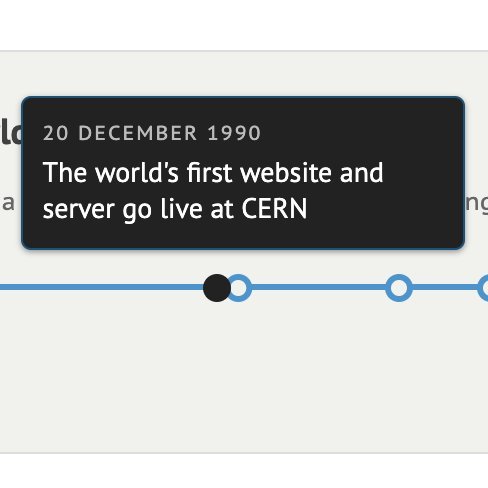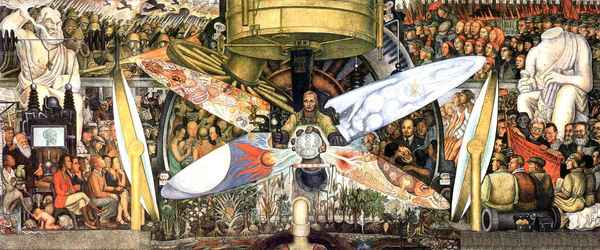Re: New years resolutions for the extremely online
This post is migrated from the old Wordpress blog. Some things may be broken.
Spent the afternoon packing and prepping for family Xmas and listening to the 20203-ending episode of the “Reimagining The Internet” podcast, in which Ethan Zuckerman and Mike Sugarman quizzed their colleagues at the Initiative for Digital Public Infrastructure about their new year’s resolutions. Festive, eh? I had some mulled wine as well, so things were merry enough.
It was good to hear people in a cool think-and-do tank I admire rattle off some aspirations that rang familiar to me for 2024, and that as the hype machine tries to continueally drive people into ever more commericalised and closed platforms, there’s a simmering zeal to reclaim the internet we remember, the fun one aimed at learning, creating and building instead of just clicking, sharing, liking, and doom scrolling (admittedly a morning coffee pass time of yours truly)
Like Zuckerman and some others in the podcast I’d decided I wanted to get back into more active blogging next, year, through while he’s planning to be more narrowly focused on the areas where he has expertise (many), I will probably mix in some feels (dubious) along the way. But also, I like the idea of being more interested in reading blogs from people with deep expertise as opposed to just skimming their hot takes on the socials. We’ll see if it sticks by March.

Websites are 32 years old. There are now many more ways to create, host and publish them, but the front matter is still roughly doing the same thing it has been for several years. The social web has tried to kill them several times, and yet here we are, with 1.13 billion of them on the internet. A new website launches every 3 seconds, but about 82% or all of them are more or less inactive (including this one a lot of the time).
The large platform providers keep trying to put the classic internet structures in the retirement home, but they’re still clicking along. It was interesting to hear people thinking about the forefront of what a better internet should be talk about wanting to leave Big Social behind and dedicate more thoughtful and niche communities and how the old IRC and online forum threads tended to generate better conversation. One Festivus grievance of 2023 has been Elon’s demolition of Twitter, but it’s also possibly been the stocking stuffer we needed. In its place are emerging a splintering of smaller, sometimes clunky but none the less more interesting communities via BlueSky and Mastodon. Both of these — and some others knocking around out there — are reminding users of something that the likes of Meta, TikTok, etc. big closed platforms would prefer people didn’t think about: Protocols matter.
Federation, either in projects like ActivityPub, or the more recent AT Protocol seem more inherently liberating. Pick a platform with a community, look and feel you like, and don’t worry. You can still talk to people on other platforms. It’s a re-kinding of the things assist users go their own way when they want to. IRC, XMPP, RSS and the other fundemental blocks are all still things kicking around out there.
These core pieces of technology are also far more freedom-preseving. You go on Facebook in India, you may not see things the government says Facebook can’t show you. In Turkey, X.com might be removing some news you would find relevant. If you’re in China and on TikTok’s version there, ByteDance, its algorithm might not be showing you very many Uighur livestreams on what’s happening in Xinjiang, or in Hong Kong it may be actively tracking users for signs of dissent. WeChat may have some swish user experience, but it’s also dishing you content through a carefully managed sieve.
Your clunky open source app running a serices of XMPP groups and IRC chats are currated by you and and the people you’ve decided to talk to. It’s clunky, frustrating and nerdy. Not witout problems. Big platforms developed user interfaces to make using their tools much more easily and fun: the biggest thing all that attention to UI did though was to train users to expect what was Apple’s old slogan: “It just works.” The trade off was big, though: privacy, access, autonomy, etc. Bigger for some than others.
We all need to get over the death of Google Reader, it’s been long enough, and realise that it didn’t actually kill RSS. In fact, I’d argue Google Reader was a bit of a trap. You didn’t need to know how to find a site’s RSS feed or know how to use it. And then Google killed Reader. It’s a bit reminiscent of Facebook making it’s platform all-important to news outlets tand then deciding to de-prioritise news. I’m hoping to find or roll my own feed reader next year and get back into how I used to enjoy getting my news and insights. But it won’t be relying on some company that has in its own best interests to obscure the actual interportability of many things, such as email for example.
So, one of my resolutions for next year kind of got a soft launch this year: starting to dust off this site and turn it into something where I may actually want to bung some text into on occation. I’m also hoping to be more involved in some other projects (to be found) that contribute in some way to developing better ways for people to bypass the 2023 buzz word (coined by Cory Doctorow the year before): Enshittification.
Have a merry Xmas or happy Hanukkah, a joyous Kwanzaa, or a restful Festivus for the rest of us. And next year do something to beat the bastards.




